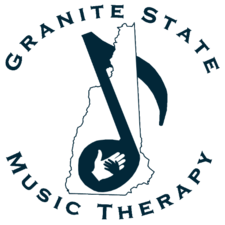Memories Set Sail Again With the Power of Music
I walked into the nursing home as I always did, following the hallway down to my client’s room. This time, she wasn’t there. I found her around the corner in the recreational common area on the main floor. I was happy to see her out and about, and glad I was able to find her without too much ado. There were family members visiting with their relatives who were residents there. I tried to enter discreetly, but that is always a challenge with a big guitar on your back and a jingling bag of instruments. I greeted my client tactfully, making sure not to cause confusion in case she didn’t recognize me. She smiled with a confused look on her face, but seemed generally happy for the company, especially when I got out my guitar and said I was going to play some music with her.
Sitting with Discomfort
I often tried different songs from her generation. Some she responded to by moving her mouth to the lyrics, some she just sat and listened to. I had never heard her really speak coherently. She had advanced Alzheimer’s disease, and our sessions changed weekly. Some days she had a more difficult time than others. I spoke to her family the first day I met her, and they gave me general ideas of genres she liked, but not many specific songs. I had decided that day to try a new song, “Always” by Irving Berlin. I had hesitated using it at first because it was a selection I was less familiar with. I was more comfortable with songs I heard as a kid. My parents had me listen to Motown and classic rock, so those were the songs I could carry the melody to with my voice and the guitar chords would just fall into place. But as I progressed through my music therapy journey, I realized more and more the need to sit with discomfort sometimes for the client’s sake. Since we often ask our clients to venture outside their comfort zone, it’s only fitting that I do as well.
Fragments of a Treasured Memory
So, I started with “Always,” peeking at my lead sheet, not feeling at all confident, but giving it a try anyway. The music began to drift over to my client. A spark of recognition appeared in her eyes and she started singing along. I realized that she knew the song better than I did as she propelled it forward. When the song had ended, she shared with me that she danced to that song at a military ball with her husband. At first, the information came in fragments. Dancing. Military. Fancy dress and uniform. Ball. Husband. But with some questioning from me, she was able to get it all out. We shared a beautiful moment together; she was able to tell me about her life. I was so glad I had tried that song with her, giving her that opportunity to remember and to share with me.
A Takeaway
Even knowing all the information about how music effects the brain and how it helps with memory, I was still taken aback and in awe at the power of music. Individuals with Alzheimer’s are often robbed of their memories, but music therapy provides an opportunity for lucid moments through music. Recreational music is great, but music therapy provides opportunities to truly individualize the music like I did in that moment, when there was a response that a trained music therapist can properly guide, supporting the client in a way that fosters connection. Music is a way to access memories that may otherwise seem unreachable.
Author: Jenni Chute, MA, MT-BC
Editor: Sonya Imperio, MT-BC
Stay up-to-date with our latest resources!
Sign up for our newsletter!
We value your privacy.





